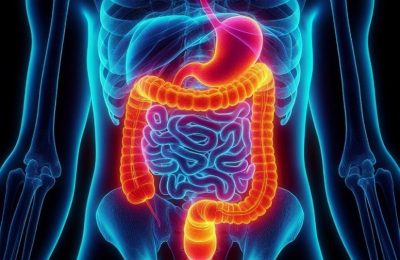Mitochondria are often called powerhouses. These structures, found in every cell in the body, convert energy from our food into a form our cells can use.
It therefore is understandable to question whether abnormalities in the mitochondria might play a role in ME/CFS, a disease that is characterised partly by an apparent lack of energy. Considerable research has addressed this question, and whilst there have been conflicting findings some studies have shown mitochondrial abnormalities in ME/CFS.
Overview of mitochondria in health and disease
The NIH produced a interesting overview summarising the many roles that mitochondria play in health and disease. Key points include:
- Muscle and aging: Mitochondrial damage impairs energy supply to muscles; aging may reduce function, though inactivity is a potential factor
- Brain health: Neurons (cells in the brain and nervous system) use lots of energy. Mitochondrial problems seem to contribute to neuron loss in Parkinson’s disease; new tests like Mito DNADX that detect damage to mitochondrial DNA may help personalise treatments.
- Mental health and stress: “…researchers are looking at how mitochondria may influence mental health conditions and how people respond to life’s stressors” Dr. Martin Picard, of Columbia University, and his team hypothesise “… if stress overwhelms the ability of the system to produce energy, “we think that can affect mental health and physical health.”
- Post viral disease: Mitochondrial damage and dysfunction, as a result of viruses, may play a role in ME/CFS and long COVID; blocking certain proteins like WASF3 shows promise.
Our articles related to mitochondria and ME/CFS
How mitochondria and the autonomic nervous system may be linked in ME/CFS
An ME Research UK-funded study, from Prof. Jo Nijs, Dr Andrea Polli, and PhD student Dr Jolien Hendrix, is exploring the connection between two features thought to contribute to ME/CFS symptoms: mitochondria (which produce energy in our cells) and the autonomic nervous system (which controls things like heart rate and blood pressure).
This PhD project will group ME/CFS patients based on the autonomic symptoms they experience and then compare mitochondrial function across those groups. The goal is to better understand how these systems interact in ME/CFS – and whether subgrouping patients could help tailor diagnosis and treatment.
Investigating mitochondrial problems in skin cells of people with ME/CFS
Dr Sarah Annesley and her team, with funding from ME Research UK, are studying whether energy production in fibroblasts (skin cells) is impaired in people with ME/CFS. They will also explore whether these changes are linked to the severity of ME/CFS.
The researchers aim to find out whether other cellular pathways are also affected, and whether epigenetic changes (which control how genes are switched on or off) might explain the persistence of these abnormalities. A better understanding of mitochondrial dysfunction may help in the development of diagnostic tests and effective pharmacological treatments for ME/CFS.
Exploring why mitochondria struggle to make energy in ME/CFS
Dr Annesley’s team has previously found that people with ME/CFS have two key abnormalities with energy production in immature white blood cells (called lymphoblasts): (1) an enzyme called ATP synthase doesn’t work as efficiently, and (2) an enzyme complex, TORC1, which regulates this process was increased.
PhD student Tina Katsaros, who is carrying out this project, plans to use a battery of different tests on lymphoblastoid cells (specific type of white blood cell) from people with ME/CFS and healthy controls, as well as from other patients with genetic mutations known to affect the function of ATP synthase and TORC1. The main questions the team is hoping to answer are whether the previously identified ATP synthase abnormality and/or elevated TORC1 activity cause other cellular abnormalities seen in ME/CFS.
Could blood factors be affecting mitochondrial function in ME/CFS?
Dr Bhupesh Prusty is investigating whether certain factors in the blood of ME/CFS patients can cause damage to mitochondria (as backed up by some of his previous research).
In this ME Research UK-funded project, Dr Prusty is trying to identify these plasma factors and determine how they impact mitochondria. He’s also studying whether viral infections might be triggering the reactivation of dormant viruses. The results will hopefully lead to a better understanding of mechanisms leading to mitochondrial dysfunction in ME/CFS and offer clues in the development of new treatments.
Can CoQ10 supplements help with mitochondrial dysfunction in ME/CFS?
A review by researchers in the UK and Spain looks at how mitochondrial dysfunction may play a role in conditions like ME/CFS, long COVID, and fibromyalgia — and whether supplements like coenzyme Q10 (CoQ10) might help.
Whilst there is interest in CoQ10 as a possible supplement, the NICE 2021 guideline for ME/CFS concluded that there is not enough evidence to recommend dietary supplementation for ME/CFS. This review is not funded by ME Research UK and should not be taken as a medical recommendation. If you’re considering CoQ10 or any supplement, please speak to your healthcare provider first.

Read further articles on mitochondria written by Trustee, Dr Eleanor Roberts




